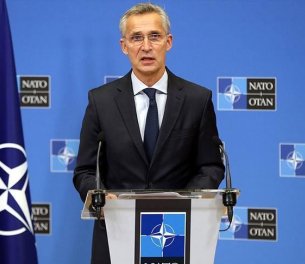* Photo: Anadolu Agency (AA) - Archive
Click to read the article in Turkish / Kurdish
France and Germany have accused Turkey of "provoking the European Union (EU)" with its activities in the Eastern Meditteranean.
Two countries have given Turkey two-week time to clarify its position regarding the Eastern Mediterranean issue.
As reported by Reuters, at a joint press conference with his counterparts from Germany and Poland, France's Minister of Foreign Affairs Jean-Yves Le Drian said in Paris yesterday (October 15), "It is clear to us that Turkey is permanently carrying out provocative acts which are unacceptable."
Le Drian further remarked that the ball was in Ankara's court, but the EU was ready to change the balance of power if Turkey did not return to dialogue.
France's FM also criticized Turkey's role in the Nagorno-Karabakh conflict, where it supports Azerbaijan against Armenia. "There will not be a military victory on this issue so the ceasefire must be implemented," Le Drian said and added, "What we can see today is the only country which is not calling for respect of the ceasefire is Turkey and that is damaging."
'Turkey's decision is unacceptable'
German's Foreign Minister Heiko Maas also said that Turkey's decision to send the vessel back to the Mediterranean was "unacceptable".
As reported by Deutsche Welle, Maas said, "This is more than annoying, including for us in our role as intermediaries."
When he was asked about the possibility of bringing forward EU sanctions, he said that the EU would decide how to react in the coming weeks.
"It has been twice that expected discussions have not taken place and we do not know when they will happen," Mass reportedly said, adding, "We must wait to see if there is progress in the next weeks and then we'll see what attitude needs to be adopted by the EU."
EU previously condemned the new Navtex
Following the declaration of 10-day-long Navtex (navigational telex) in the Eastern Mediterranean, Turkey's Oruç Reis seismic research vessel left Antalya Port in the early morning hours on October 12.
High Representative of the European Union (EU) for Foreign Affairs and Security Policy and Vice President of the European Commission Josep Borrell Fontelles addressed this issue at the Foreign Affairs Council in Luxembourg. "We consider that Turkey needs to engage actively in finding solutions and not to engage in negative behaviour," he said and added:
"The latest Navtex announcements by Turkey affecting Greek and Cypriot maritime zones are also regrettable. This will lead to new tensions instead of contributing to the de-escalation efforts that we were calling for at the last EU Council, and that we want to pursue and continue to call for."
Maas also cancelled his scheduled visit to Turkey.
CLICK - A brief summary of Eastern Mediterranean crisis
Timeline of the Eastern Mediterranean crisisThe tension between Turkey and Greece over their right to explore energy resources in the Eastern Mediterranean has seriously escalated over the last months. The latest developments leading to this escalation are briefly as follows: On July 21, Turkey issued its first Navtex alert for Oruç Reis seismic vessel's exploration activities in the Eastern Mediterranean. On July 28, Turkey announced after Germany's diplomatic efforts that it suspended hydrocarbon exploration activities and stated that it was ready to talk with Greece. On August 6, Greece and Egypt signed a maritime border agreement. On August 10, Turkey announced that its drillship Oruç Reis would resume energy exploration in the Eastern Mediterranean. It said the ship will continue its work along with the ships Cengiz Han and Ataman until August 23. On August 14, the EU foreign miniters discussed the crisis at an extraordinary meeting, calling on Turkey to end hydrocarbon exploration activities in contested waters. On August 16, Turkey issued a Navtex, announcing that its drill ship Yavuz will continue its work exploring for energy resources off the island of Cyprus. On August 23, Turkey issued another Navtex, stating that the Oruç Reis vessel would continue its activities until August 27. On August 24, Greece held joint naval drills with the US in the south of Crete island. One day later, Turkey conducted naval exercises with Italy. On August 25, Germany's Minister of Foreign Affairs Heiko Maas visited Athens and Ankara to encourage the two countires to have direct talks. On the same day, Turkey held replenishment exercises with Italy in the Eastern Mediterranean. On August 26, US President Donald Trump had phone talks with President Recep Tayyip Erdoğan and Prime Minister of Greece Kyriakos Mitsotakis, urging them to reduce tensions and start dialogue. On the same day, Turkey and the US conducted joint maritime exercises. On August 27 and 28, EU foreign ministers met with the Eastern Mediterranean crisis on the top of their agenda. The Union's foreign polict head Josep Borrell said after the meeting that Turkey's ships might be sanctioned if they continued hydrocarbon activities. Turkey's Ministry of National Defense on August 28 announced that it intercepted six F-16 fighters planes of Greece, which it said were closing in on the area where Turkey issued a Navtex. On September 1, the US lifted the arms embargo on Southern Cyprus. On September 2, Turkey issued two Navtex alerts for Russia's gunnery exercises in the Eastern Mediterranean. It was stated that Russia would conduct exercises in two different areas that correspond to Turkey's hydrocarbon exploration activities on the east and west of the Cyprus island. On September 3, NATO Secretary General Jens Stoltenberg said, "Following my discussions with Greek and Turkish leaders, the two Allies have agreed to enter into technical talks at NATO to establish mechanisms for military deconfliction to reduce the risk of incidents and accidents." On September 4, Prime Minister of Greece Kyriakos Mitsotakis said that Greece would only enter into a dialogue with Turkey if it "stops provocations" in the Eastern Mediterranean. Shortly before this statement, Turkey's Foreign Ministry stated, "Turkey is ready to enter into dialogue with Greece without any preconditions." On September 10, military delegations from Turkey and Greece had technical talks at NATO headquarters to prevent military engagement. On Septemebr 15, issuing a new NAVTEX alert for the Chios Island of Greece, Turkey argued that Greece had militarized Chios Island in violation of the 1923 Lausanne Peace Treaty. The military delegations from the two countries held the second technical meeting. On September 17, the European Parliament warned Turkey of sanctions if it continues its hydrocarbon exploration activities. On September 18, Turkey summoned Greece's envoy over a newspaper headline about President Erdoğan. On September 21, the US stated that it does not consider the Seville Map on the maritime borders of Turkey and Greece as a document that has legal significance. On October 1, A military deconfliction mechanism has been established between Turkey and Greece. On October 2, The European Union (EU) stated after its leaders' summit in Brussels that it wanted to give a chance to constructive political dialogue but warned that all options were on the table if that was not the case. On October 8, foreign ministers of Turkey and Greece had their first meeting since the start of the crisis. On October 12, Turkey issued a new 10-day Navetx for its seismic research vessel Oruç Reis and the vessel left Antalya Port early in the morning On October 13, it was announced that Germany's Foreign Minister Heiko Maas cancelled his visit to Turkey and the EU condemned Turkey's new Navtex, saying, "The latest Navtex announcements by Turkey affecting Greek and Cypriot maritime zones are regrettable." On October 15, at a joint press conference in Paris, France's FM Le Drian and Germany's FM Maas slammed Turkey's decision to send Oruç Reis back to Eastern Mediterranean. |
(EKN/SD)





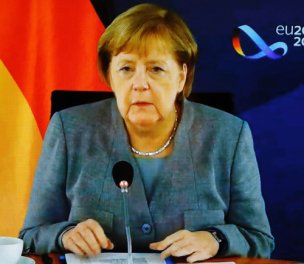

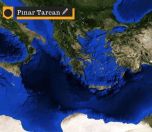
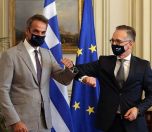
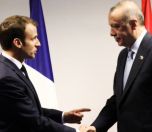
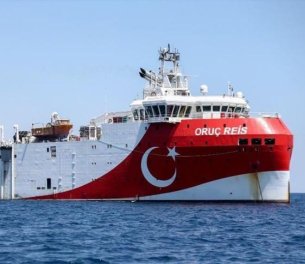
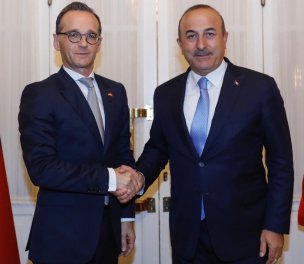
-132.jpg)
